Kate Saunders
Personalised recommendations of sleep behaviour with neural networks using sleep diaries captured in Sleepio
Jul 29, 2022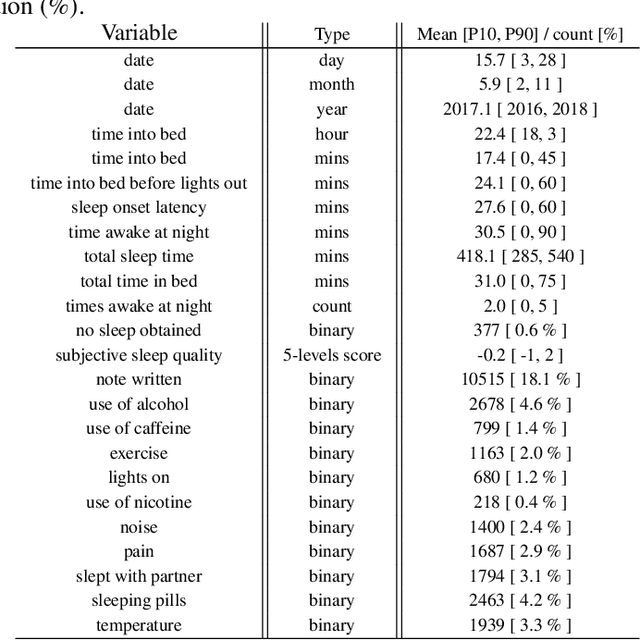
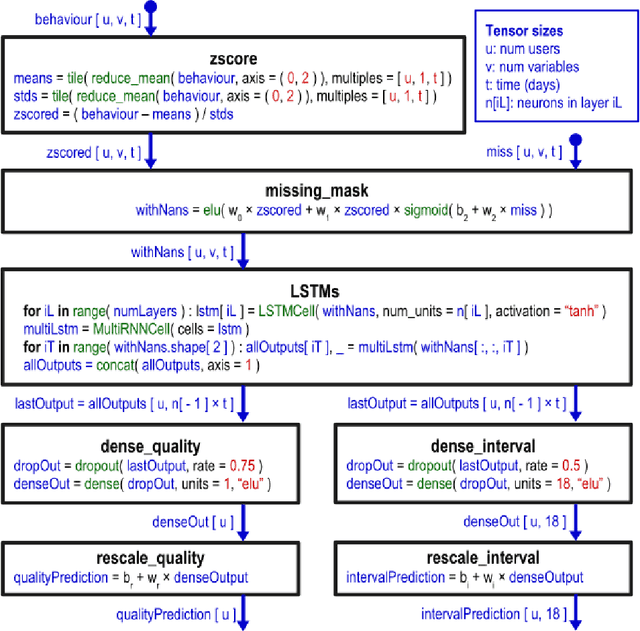
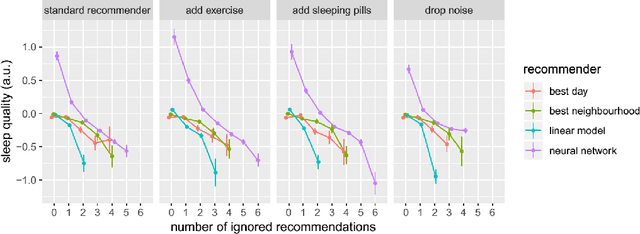
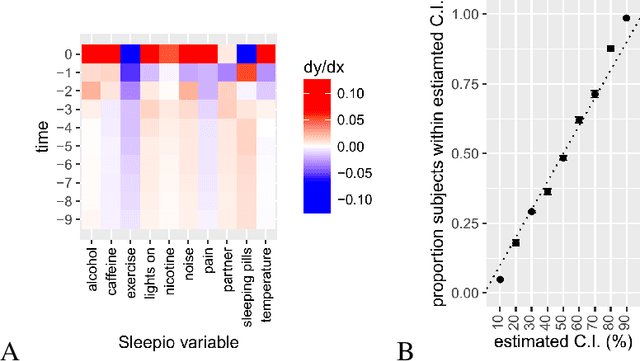
Abstract:SleepioTM is a digital mobile phone and web platform that uses techniques from cognitive behavioural therapy (CBT) to improve sleep in people with sleep difficulty. As part of this process, Sleepio captures data about the sleep behaviour of the users that have consented to such data being processed. For neural networks, the scale of the data is an opportunity to train meaningful models translatable to actual clinical practice. In collaboration with Big Health, the therapeutics company that created and utilizes Sleepio, we have analysed data from a random sample of 401,174 sleep diaries and built a neural network to model sleep behaviour and sleep quality of each individual in a personalised manner. We demonstrate that this neural network is more accurate than standard statistical methods in predicting the sleep quality of an individual based on his/her behaviour from the last 10 days. We compare model performance in a wide range of hyperparameter settings representing various scenarios. We further show that the neural network can be used to produce personalised recommendations of what sleep habits users should follow to maximise sleep quality, and show that these recommendations are substantially better than the ones generated by standard methods. We finally show that the neural network can explain the recommendation given to each participant and calculate confidence intervals for each prediction, all of which are essential for clinicians to be able to adopt such a tool in clinical practice.
A signature-based machine learning model for bipolar disorder and borderline personality disorder
Oct 04, 2017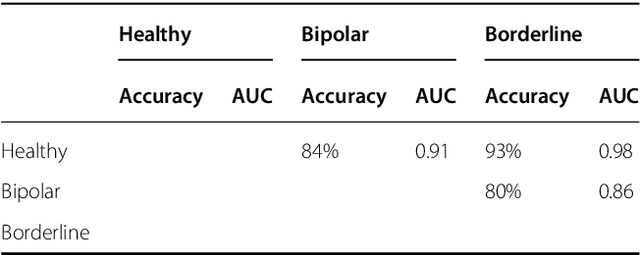
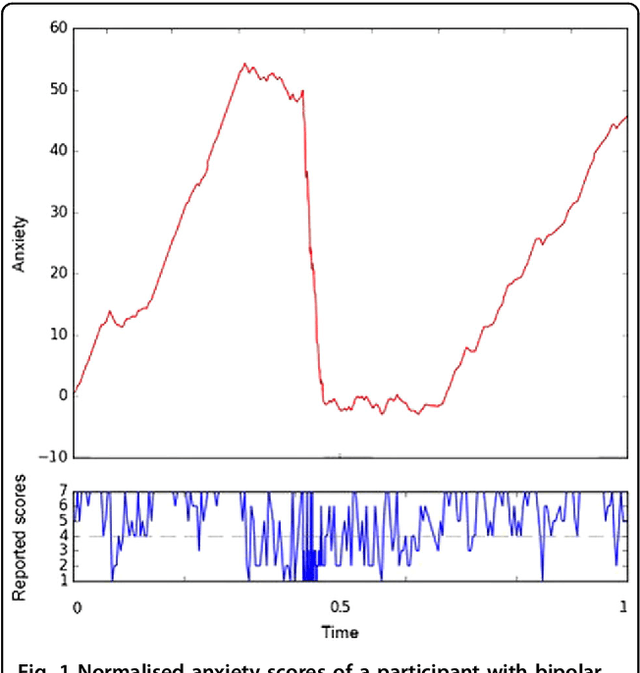
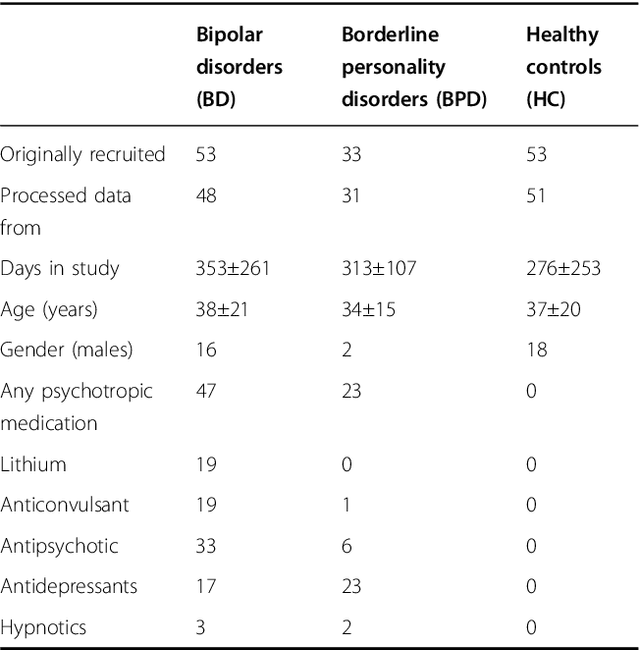
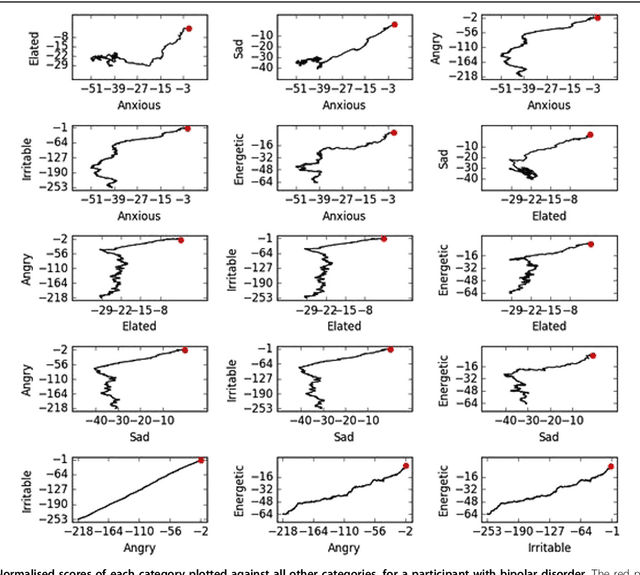
Abstract:Mobile technologies offer opportunities for higher resolution monitoring of health conditions. This opportunity seems of particular promise in psychiatry where diagnoses often rely on retrospective and subjective recall of mood states. However, getting actionable information from these rather complex time series is challenging, and at present the implications for clinical care are largely hypothetical. This research demonstrates that, with well chosen cohorts (of bipolar disorder, borderline personality disorder, and control) and modern methods, it is possible to objectively learn to identify distinctive behaviour over short periods (20 reports) that effectively separate the cohorts. Participants with bipolar disorder or borderline personality disorder and healthy volunteers completed daily mood ratings using a bespoke smartphone app for up to a year. A signature-based machine learning model was used to classify participants on the basis of the interrelationship between the different mood items assessed and to predict subsequent mood. The signature methodology was significantly superior to earlier statistical approaches applied to this data in distinguishing the participant three groups, clearly placing 75% into their original groups on the basis of their reports. Subsequent mood ratings were correctly predicted with greater than 70% accuracy in all groups. Prediction of mood was most accurate in healthy volunteers (89-98%) compared to bipolar disorder (82-90%) and borderline personality disorder (70-78%).
 Add to Chrome
Add to Chrome Add to Firefox
Add to Firefox Add to Edge
Add to Edge